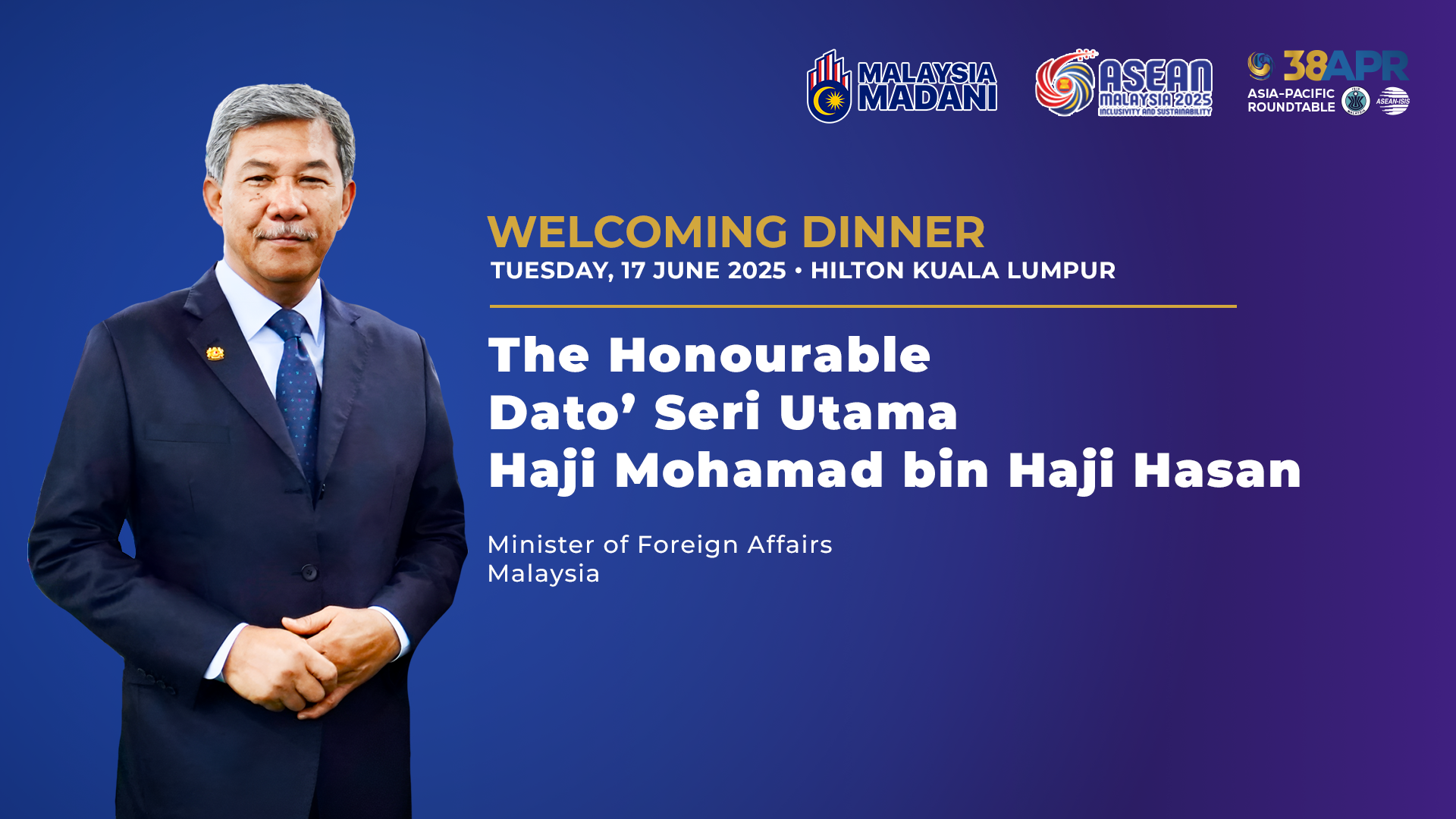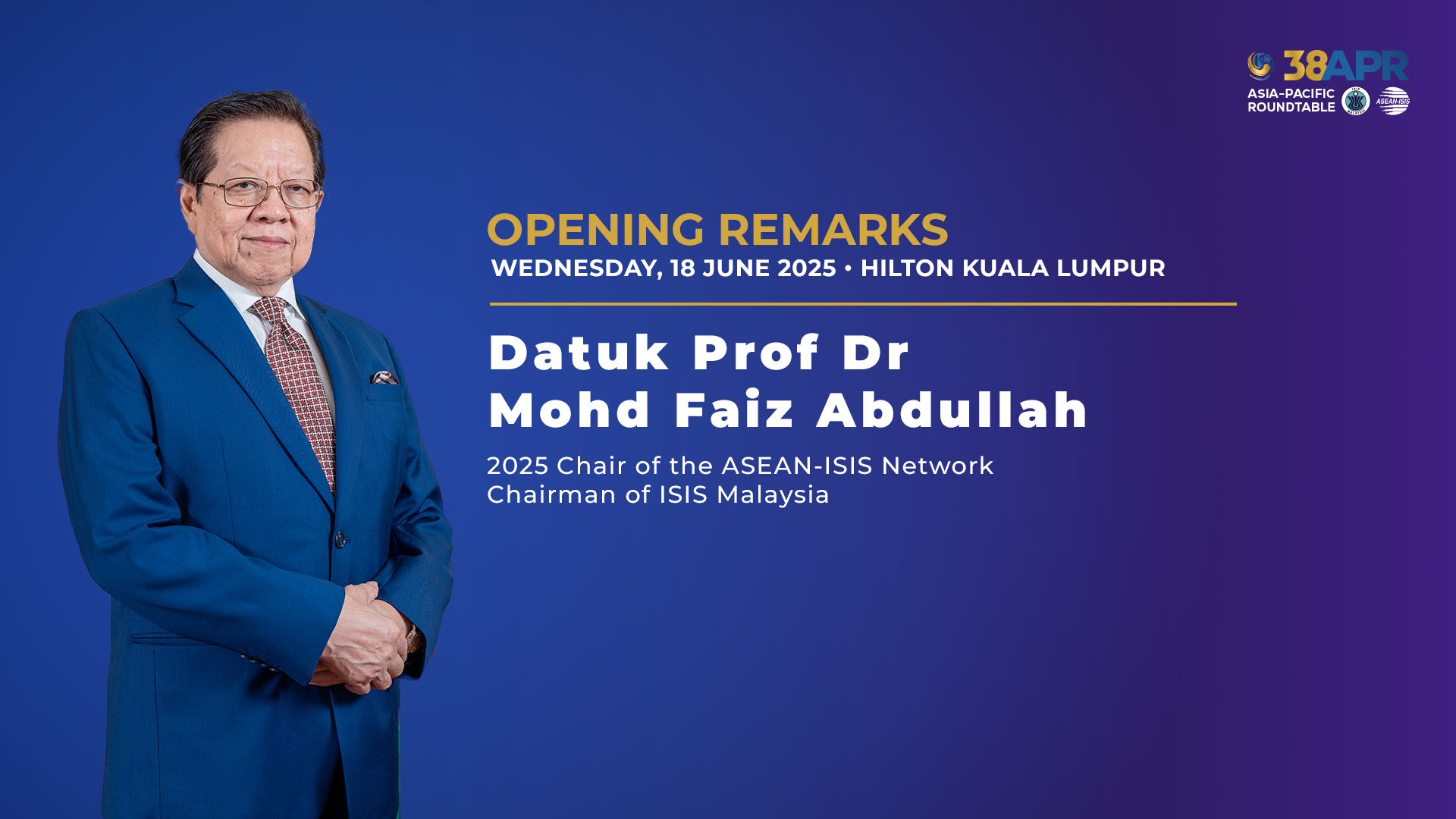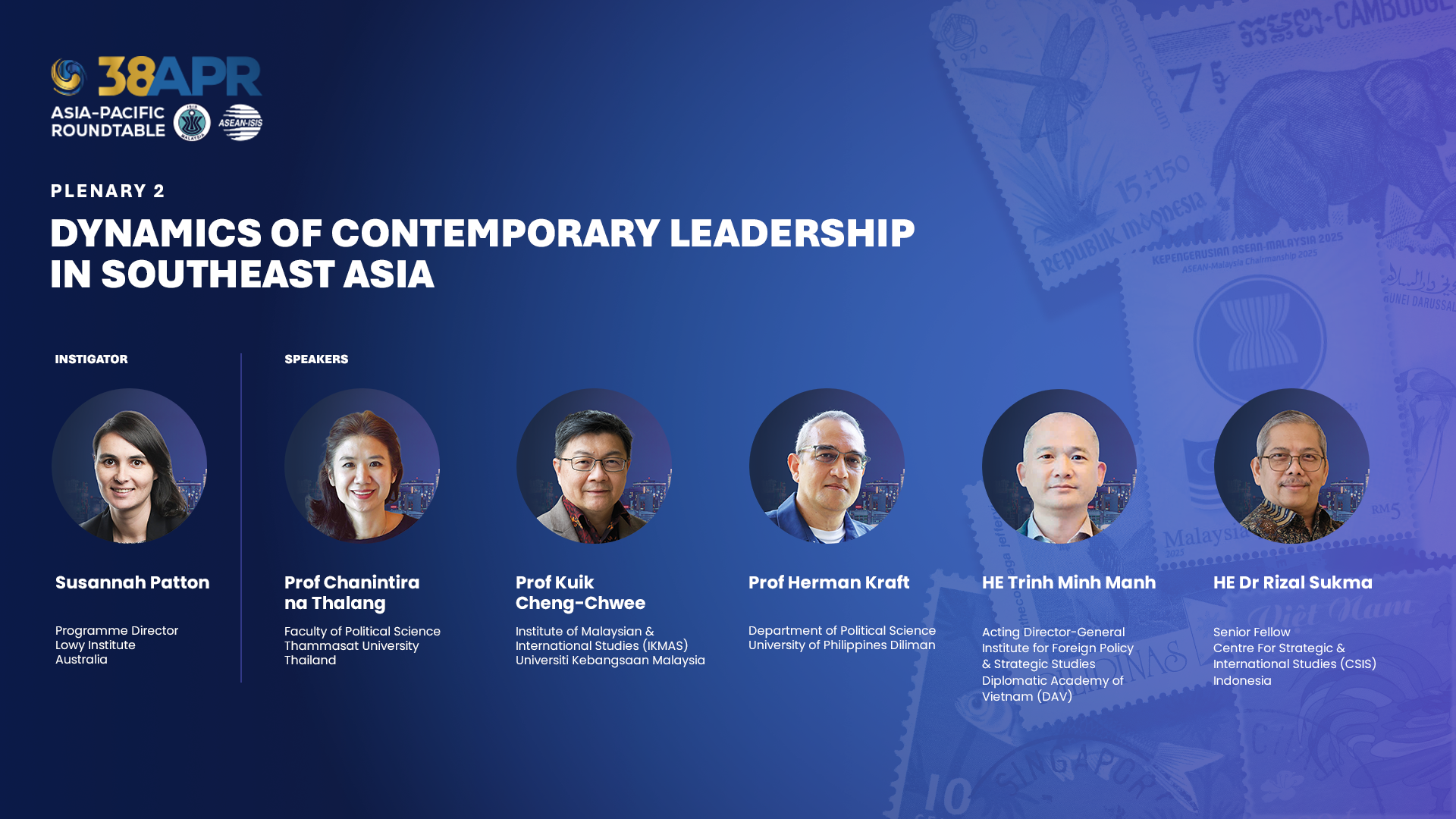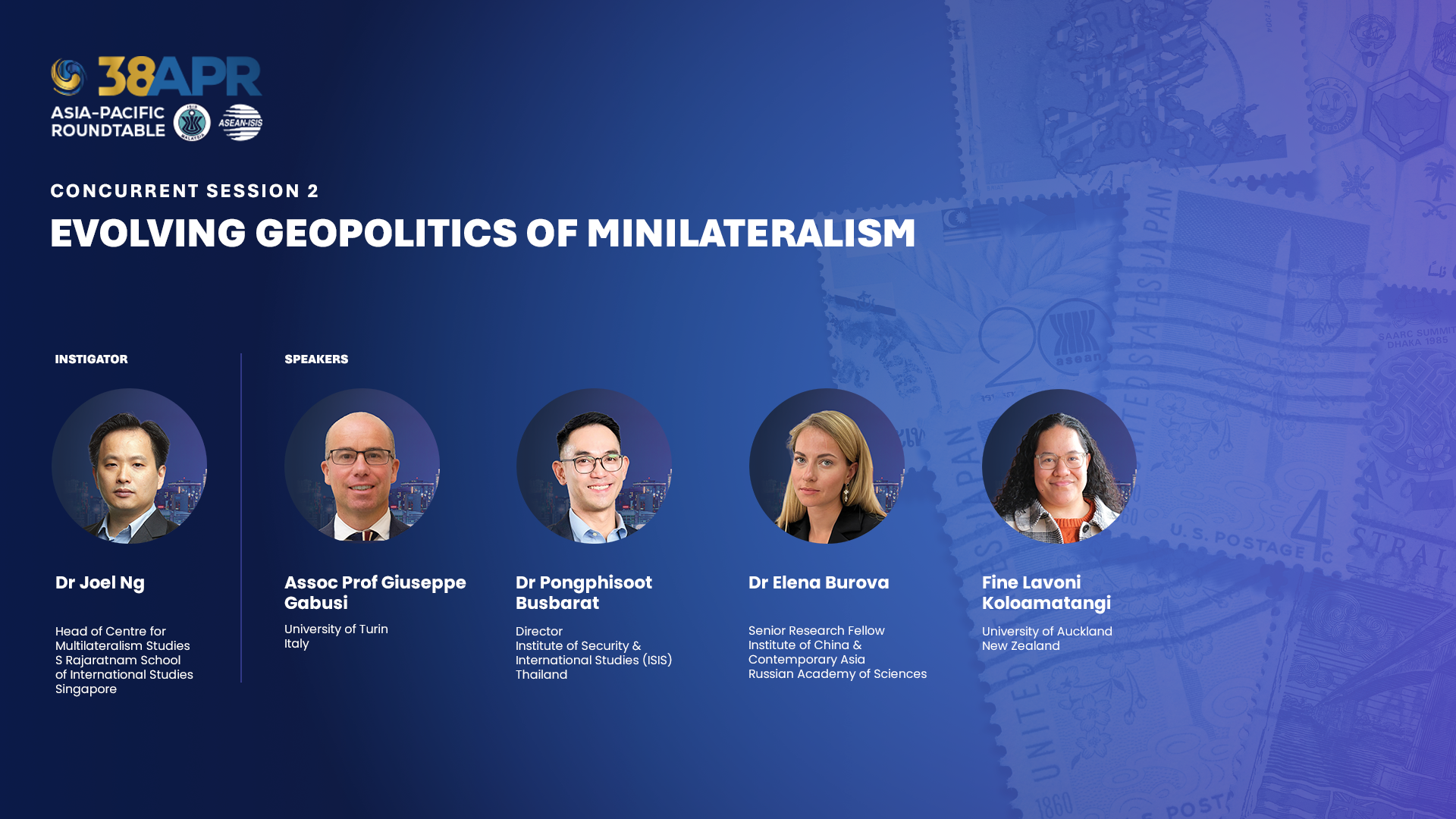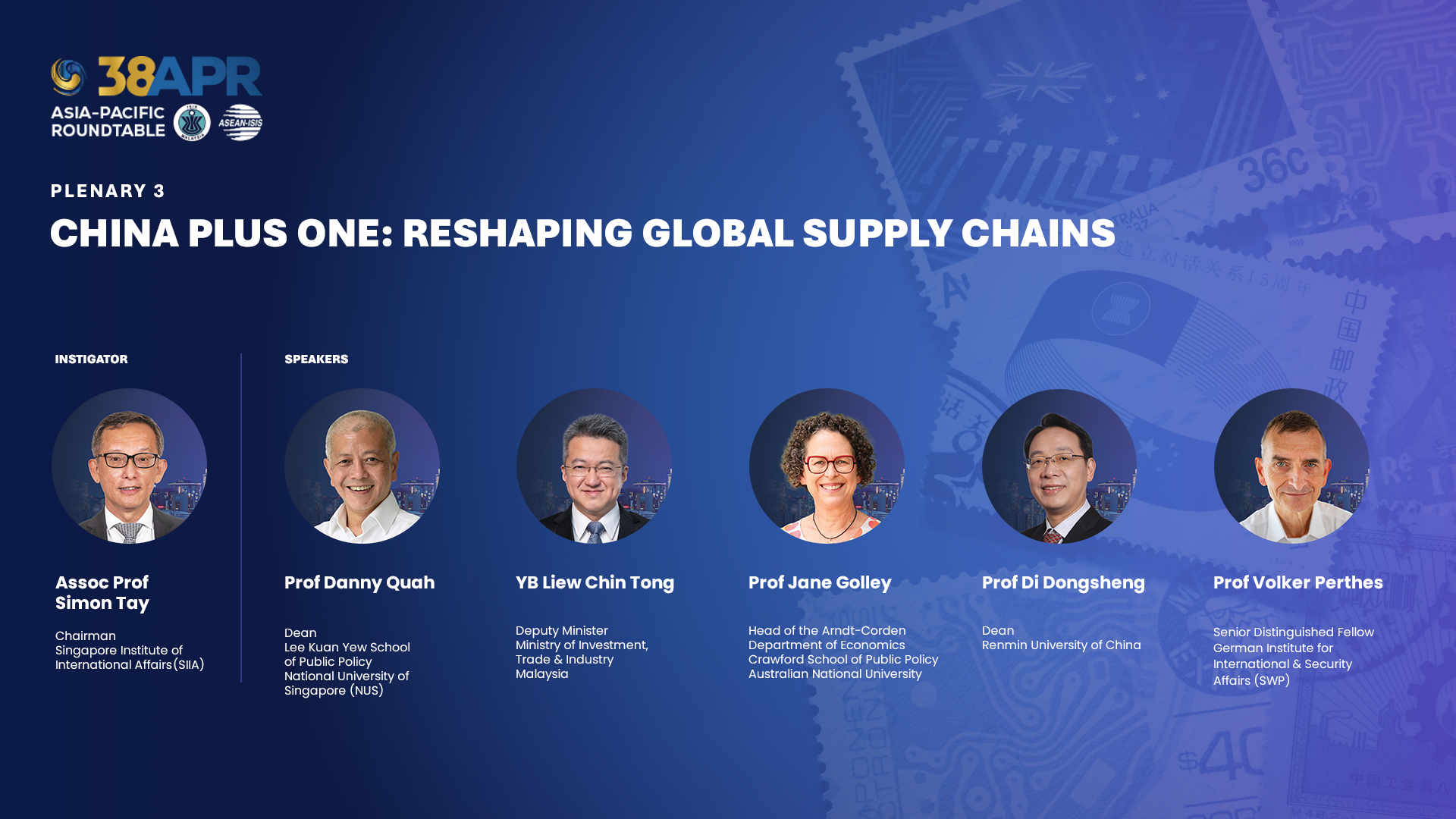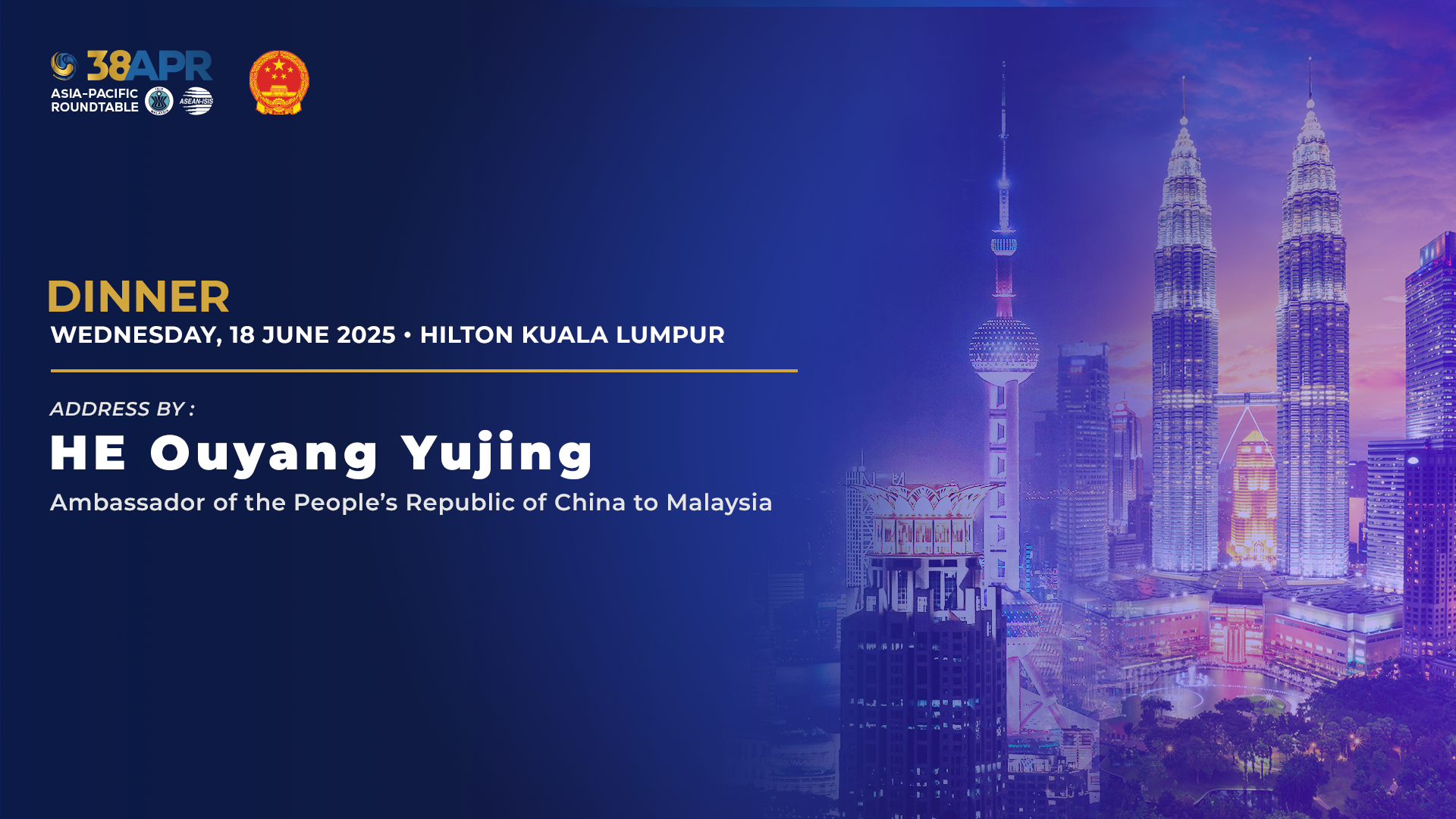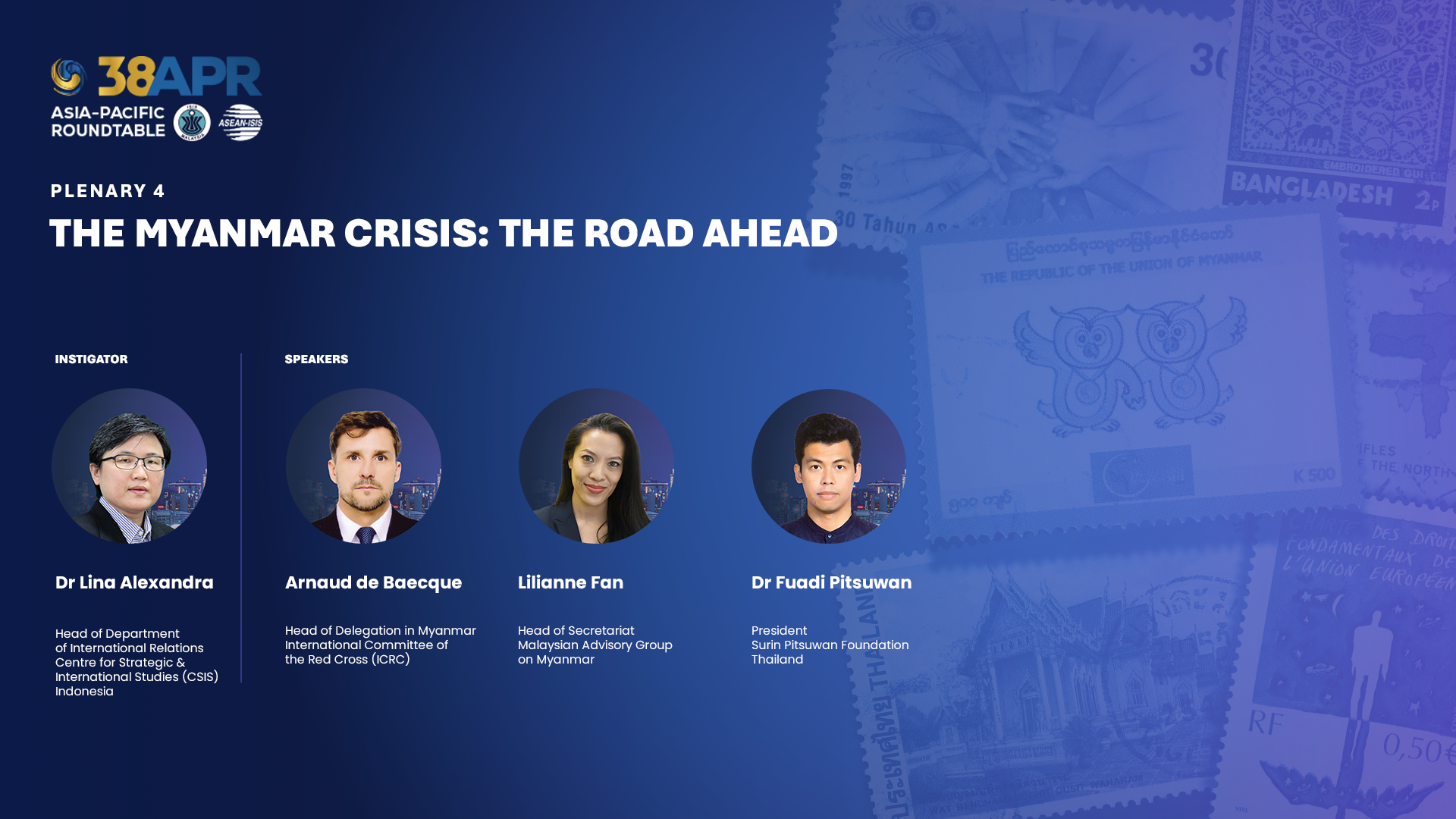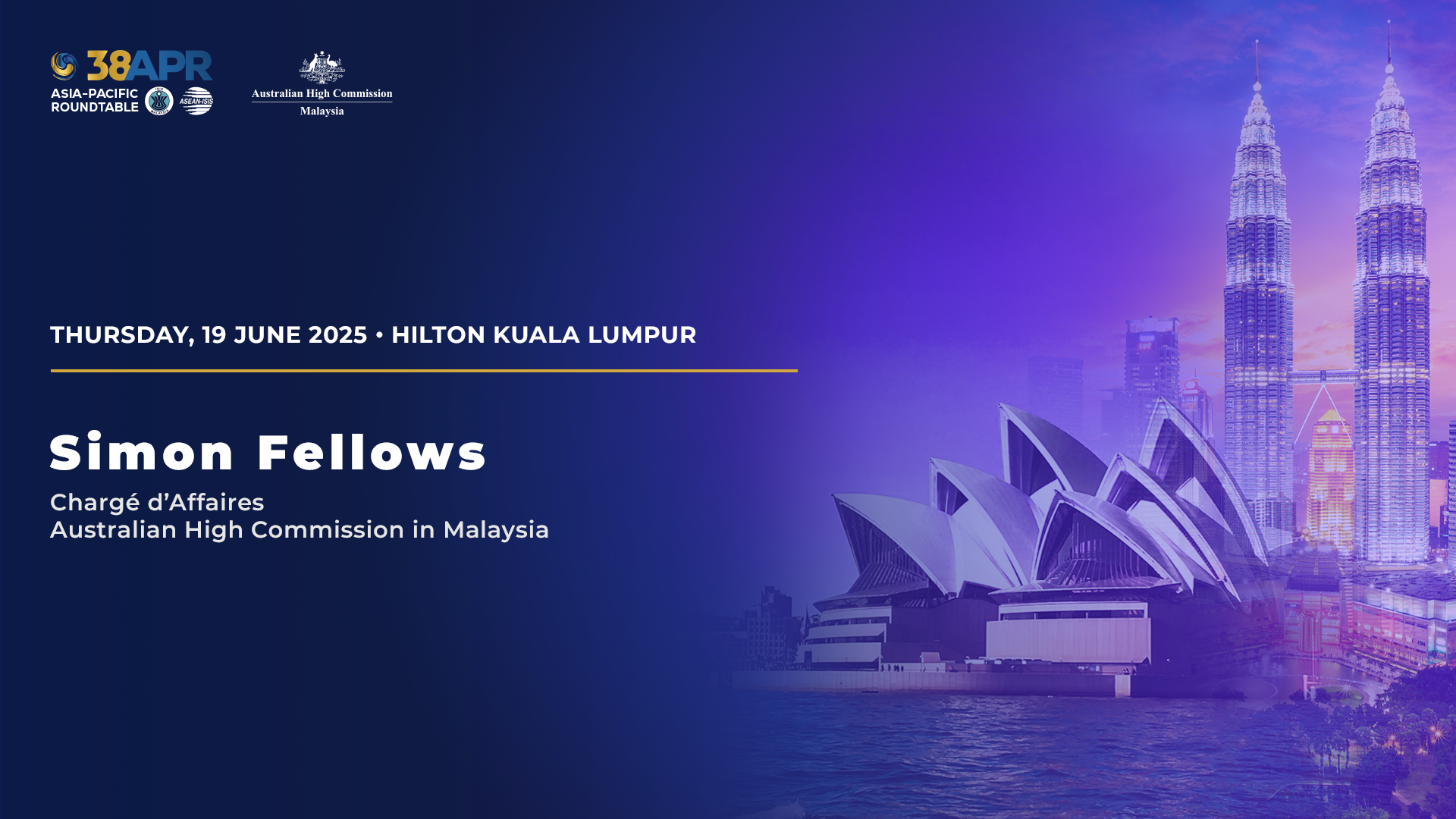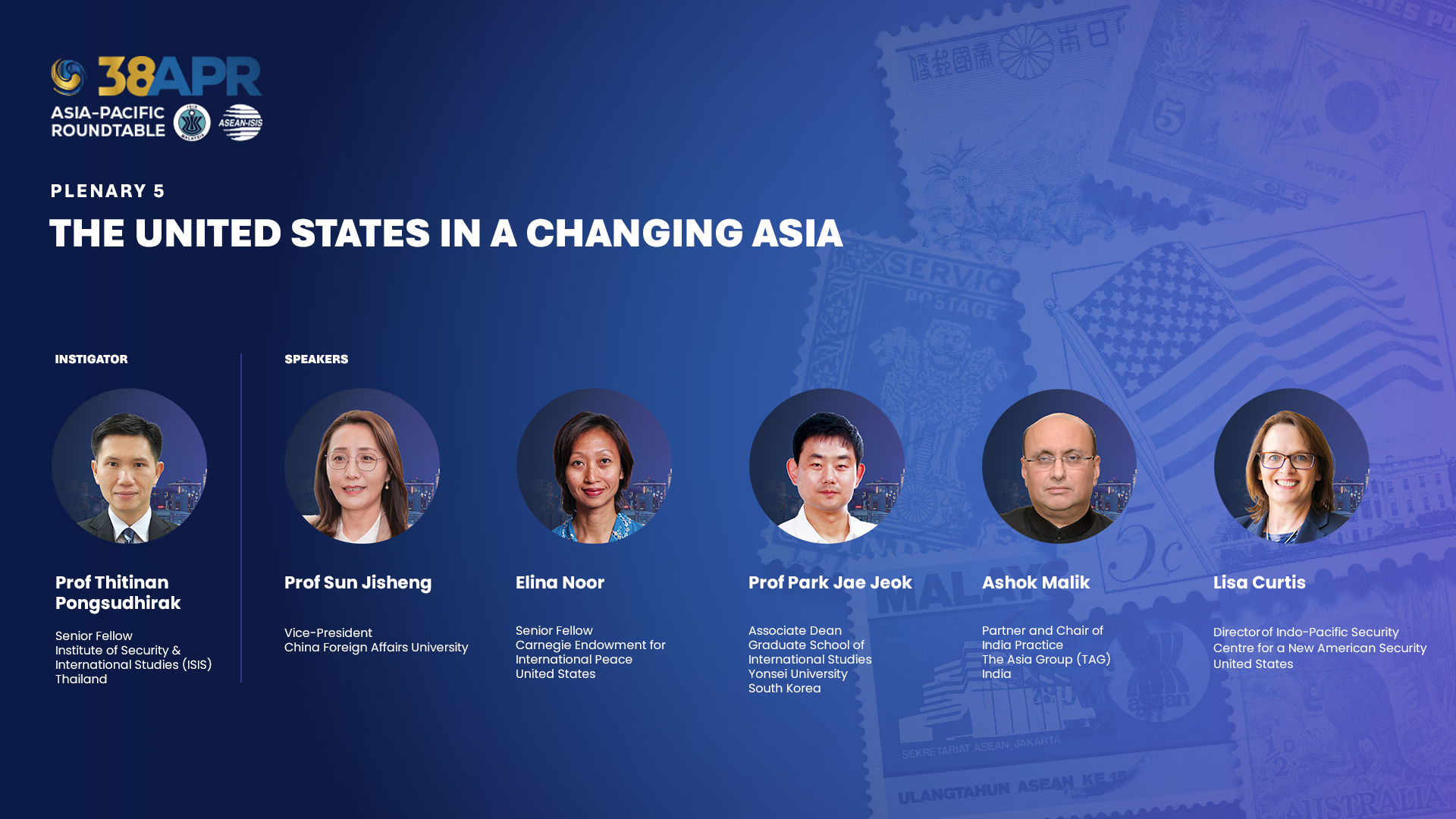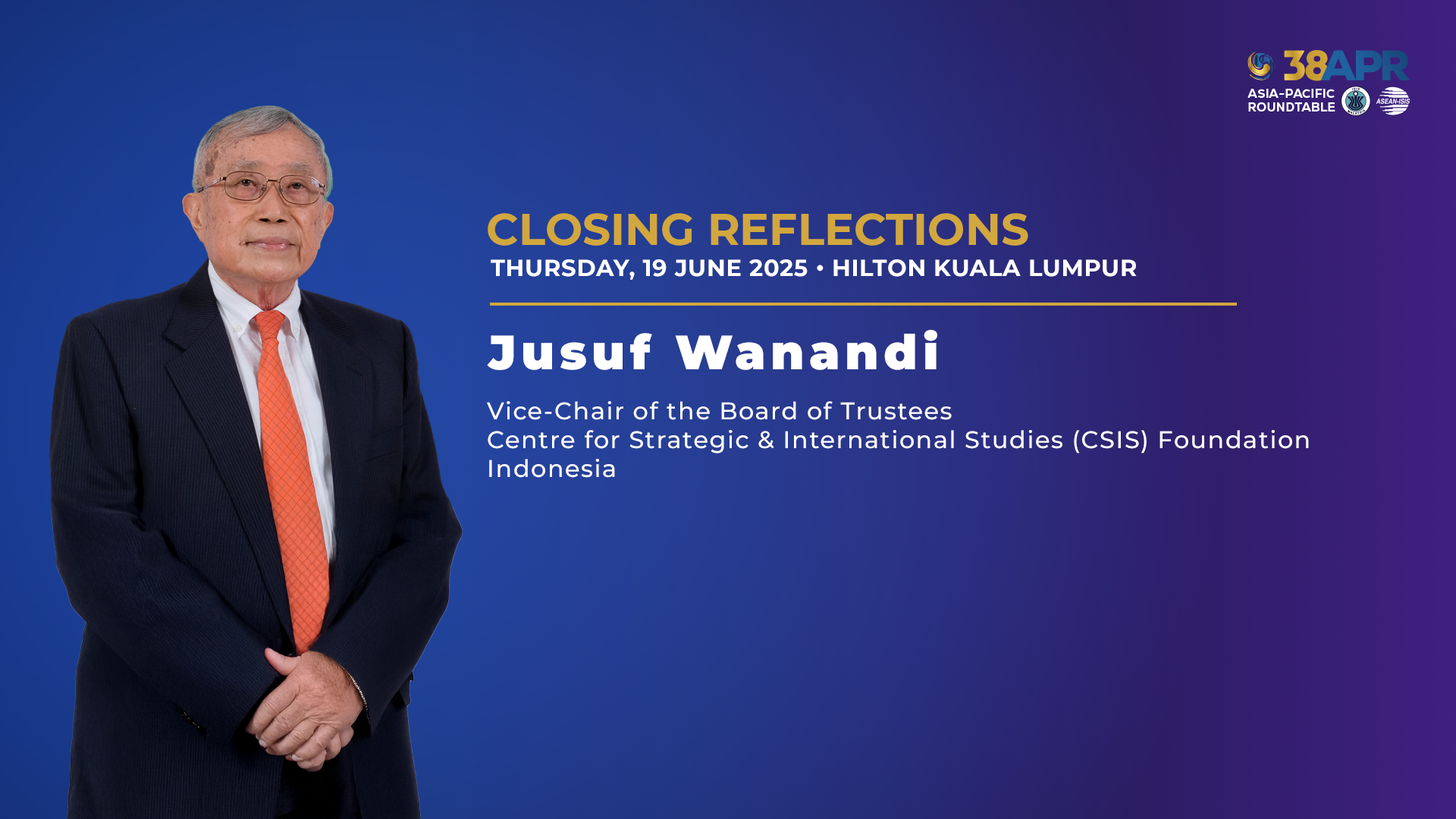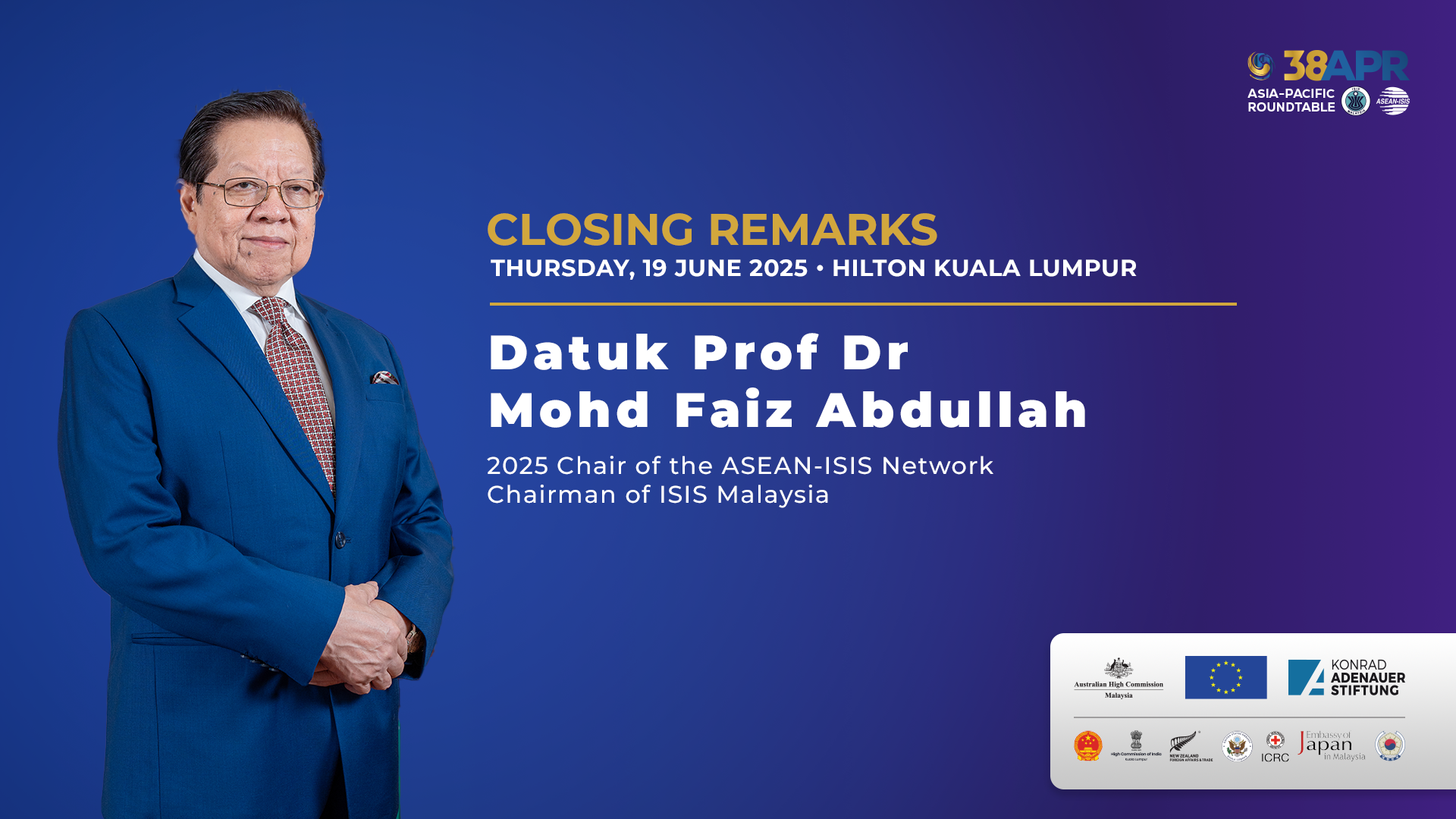
Tuesday, 17 June 2025
Wednesday, 18 June 2025
While the Asia-Pacific continues to be a hub of global economic growth and innovation, the risks of conflicts, including wars, remain. Adjacent to the region, wars continue to afflict parts of West Asia, North Africa and Europe. How do conflicts outside the region impact on the strategic calculus of policymakers in the Asia-Pacific? Have they impacted on the normative and ideological considerations that influence peace, security and conflict in this region? Has the threshold or tolerance for conflict changed in the Asia- Pacific? How do we address the trust deficits that could lead to conflicts?
A strong convergence of interests among Southeast Asia’s leaders was crucial in laying the groundwork for regional cooperation, from the founding of ASEAN to the expansion of its centrality through various mechanisms. Over the past two years, almost all member states have seen new leadership, setting the stage for new intra-ASEAN dynamics. To what extent do personality driven policies shape Southeast Asia’s dynamics? Do today’s leaders prioritise ASEAN as their predecessors did? How do leaders relate to each other, if at all? Is there enough cohesion for a convergence of interests?
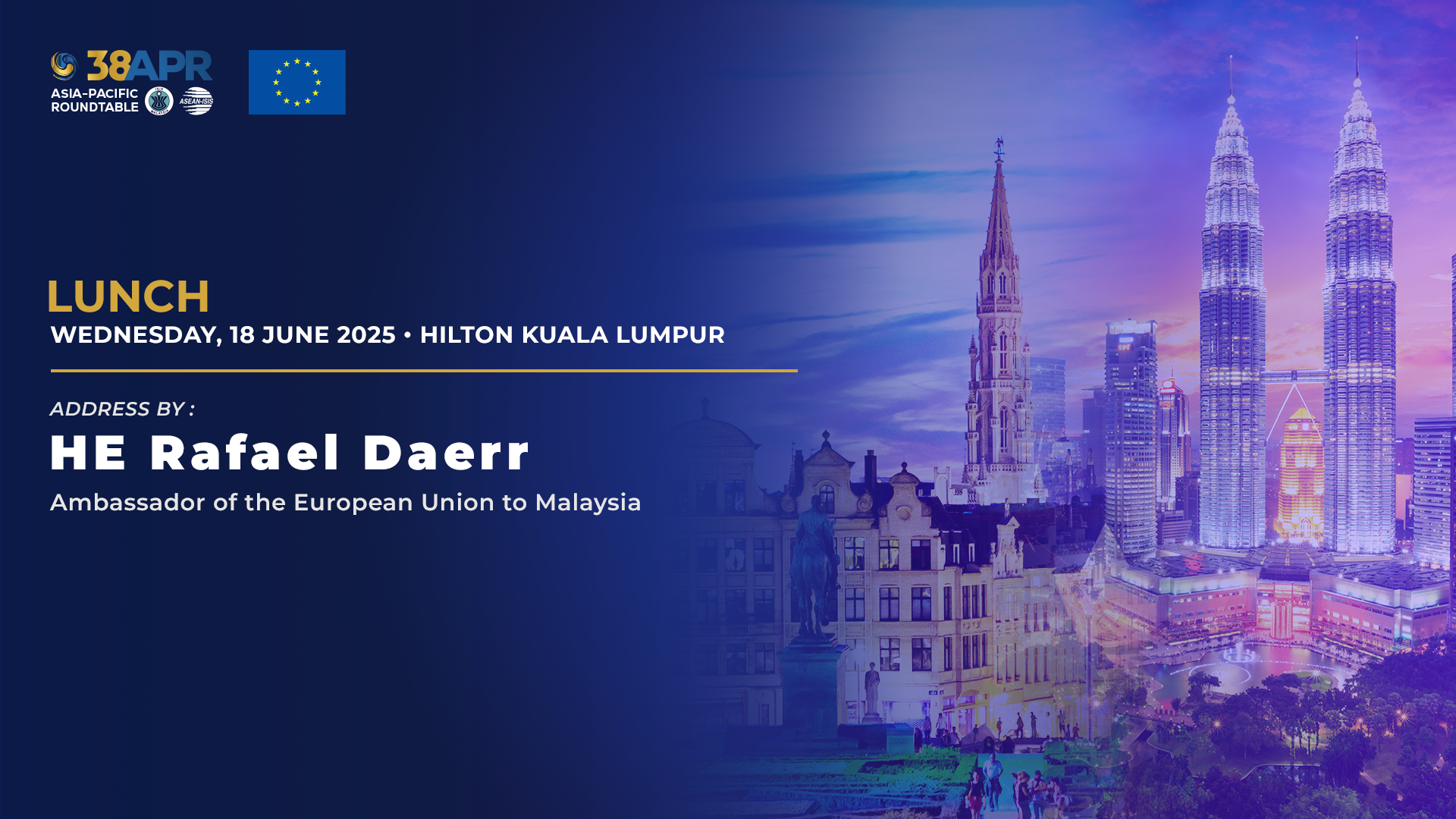
Maritime challenges and tensions are increasingly being shaped by different perspectives of security – political, legal, and intellectual. These conceptual divergences have at times hampered any tangible progress on outstanding disputes. How do states define “maritime security” and to what extent does it shape conflict? Are international maritime laws and norms at risk as countries prioritise their national interests at the expense of the global commons? How can Track 2 actors encourage greater collaboration and cohesion on shared security issues like maritime safety, economy and ecology amid contested environments?
Minilateralism has shifted from being a response to stagnant multilateralism to a proactive strategy driven by like-minded states. While it can be an agile tool for power projection and shaping the regional and global order, critics contend that it perpetuates a less inclusive form of collaboration. Is minilateralism an effective tool for geopolitics or does it simply perpetuate exclusion and antagonism? Could minilateralism strengthen nuanced and targeted cooperation, paving the way for effective multilateralism or will it render the latter obsolete? Can one exist without the other?
The diversification of supply chains out of China in recent years has gained widespread attention to mitigate risks associated with the evolving geopolitical landscape. This is particularly evident in the electronics industry, including semiconductors. Is China Plus One driven solely by the US-China rivalry or are there other factors? How are China Plus One strategies playing out in Southeast Asia, and is the region still a major beneficiary of major-power competition? Are current trends an indication of a possible deglobalisation or re-globalisation?
Thursday, 19 June 2025
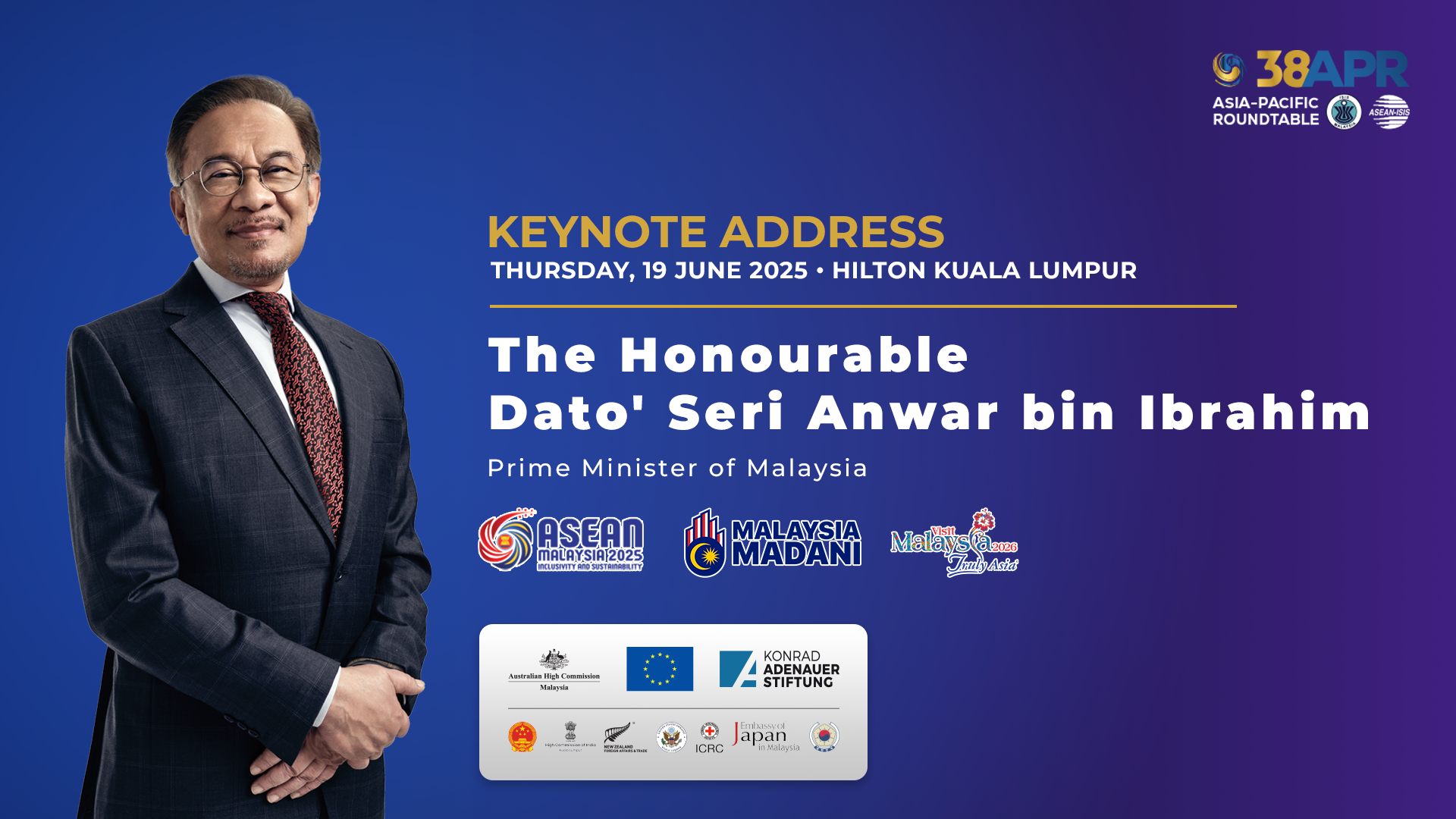
Four years after the coup, which triggered the crisis in Myanmar, the country remains deeply divided. Displacement and suffering are widespread, while the economy has collapsed and assorted actors now control swathes of the country. Despite ongoing conversations on a new federal system, the prospects of a Balkanised or fragmented Myanmar remain a possibility. How have battlefield developments impacted on political equations or processes? Where is the most urgent humanitarian assistance required and how can stakeholders address this? How can ASEAN and other international actors respond to the complex dynamics at play in 2025 and beyond?
Asia is navigating an era of heighted competition, economic realignment and the rise of minilateral partnerships. The US has maintained a strong presence in the region through a network of alliances over the past 75 years but faces a more complex and competitive strategic environment today. What are the emerging priorities and implications of American policies in Asia? How would Washington pursue its economic engagements in the region? How are regional stakeholders, including partners and multilateral groupings, responding to the changing dynamics?
